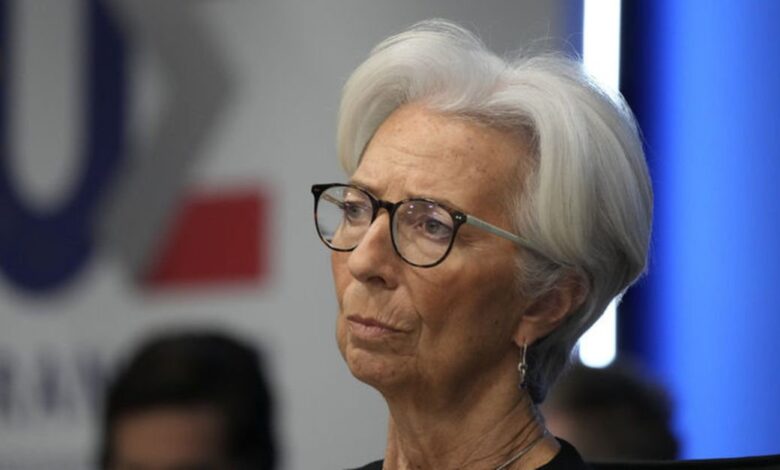Lagarde: ECB determined to fight high inflation

President of the European Central Bank (ECB), Christine Lagarde, emphasized that the Bank is determined to fight high inflation.
Lagarde wrote a blog post on the ECB’s 25th anniversary.
Stating that the ECB responded quickly to the epidemic by announcing measures in the Kovid-19 epidemic, Lagarde emphasized that the Bank acts with the same determination to bring down the unusually high inflation today.
“After many years of being very low, inflation is now very high and will remain so for a very long time. It reduces the value of money, its purchasing power. It affects people and companies in the Eurozone. It’s particularly affecting the most vulnerable segments of our society,” Lagarde said. used the phrases.
Emphasizing that the ECB will bring inflation back to its medium-term 2 percent target, Lagarde said, “For this reason, we have increased interest rates at a record pace and will bring interest rates to sufficiently restrictive levels to bring inflation back to our target. We will keep monetary policy at these levels for as long as necessary.”
“It wasn’t always easy”
Evaluating the work of the ECB in the last 25 years, Lagarde said:
“It hasn’t always been easy. However, under the leadership of ECB Presidents Wim Duisenberg, Jean-Claude Trichet and Mario Draghi before me, the ECB has always been careful to fulfill its mandate, in good as well as bad economic times, thereby strengthening the foundations of Europe’s future. “
Since July 2022, the ECB has increased the main interest rates 7 times in a row, for a total of 375 basis points. Analysts expect a 25 basis point increase at the ECB rate meeting to be held on June 15.
On the other hand, the ECB, the body responsible for monetary policy in the Euro Area, started its work on 1 June 1998. Headquartered in Frankfurt, Germany, the main purpose of the ECB is to maintain the value of the euro by ensuring price stability in the Eurozone.
The Euro is used by Germany, Austria, Belgium, Estonia, Finland, France, Netherlands, Ireland, Spain, Italy, Cyprus, Latvia, Lithuania, Luxembourg, Malta, Portugal, Slovakia, Slovenia and Greece. Croatia also started using the euro earlier this year.





